We held off on publishing this blog. The following Dueling Blogs were written ten days ago, but something told us to wait, and see what the week held … Pokemon-wise. It’s not that we anticipated softening our tone, or rendering some kind of apologia or erratum—which, ironically, we did decide was necessary with our larger project, “The Little Book of Lynching, Part Two”, finished at around the same time. No, the reason we held off publishing these blogs is that we wanted to see if our fears were affirmed. And those fears were not so much about Pokemon Go, as such. Rather, they were about the larger and more frightening trend of opposing parties “cross-talking.” (That being the case, it is both ironic and eerie that that Pokemon craze really took off during the weeks of the Republican and Democratic Conventions.) And, no less importantly, our fears were about the larger problem of people who don’t read books anymore not understanding the nuances of debate.
So, Pokemon Goers, here goes: I have read dozens of articles this week, and my suspicions were confirmed: the majority of your detractors are not objecting to the game itself. Hey, we get it. A treasure hunt! Time honored. Not as elegant as geocaching, and more simplistic than Ingress, but fun. So far, so good. Where can I sign up? But the Pokemon Go defenders have largely failed to listen to the specific and reasonable complaints of the detractors, and as a result, you gamers with your heads stuck up your butts (I know, hard to do while your eyes are glued to the screen) have written these lengthy epistles about what wonderful fantasy and escapism Pokemon Go is, and how you have invented this groovy new-fangled thing called “exercise” and discovered this heretofore hidden treasure called “conversation”, neither one of which were happening while you were down deep in your dungeons playing Arkham Knight, Minecraft, Super Mario Brothers, or Grand Theft Auto.
Hurrah. You are emerging from your dark basements, breathing the fresh air, and interacting with others of your species. Walking and talking. We applaud this, fellow Homo sapiens. Just don’t forget your sunscreen.
That’s not what we “contrarians” and “curmudgeons” have a problem with. What we have a problem with is a game that leads children to walk into intersections, and adults who are acting like children to walk off of cliffs. And no, there are no hyperlinks here. We are not going to insult you and suggest that you haven’t already read these stories. So just to clarify, we aren’t discussing what is good about Pokemon Go here. We are talking about real dangers and disruption, documented world-wide, in alarming numbers, and not one defender has properly addressed that. IGNACIO ELENCHI.
Nothing in a week has changed this: Nintendo designed a game that is basically unsafe.
Pokemon Go, as designed and played, is dangerous. And no, I am not against augmented reality, nor do I think the Oculus Rift is of the Devil. In fact, I can’t wait for virtual reality. I can finally tour the Louvre. See the Pyramids. Trek to Victoria Falls. But Pokemon Go is inherently dangerous, and the only way that statement is not true, is if just ONE of the following statements IS true:
a.) Walking with your head down and your eyes glued to the screen is perfectly safe OR
b.) Most everybody who plays Pokemon plays it the way the lawyered-up Nintendo tutorial shows:
WITH THEIR ARM HELD OUT STRAIGHT IN FRONT OF THEM, AT A NINETY DEGREE ANGLE FROM THE BODY, HOLDING THEIR PHONE UPRIGHT, WHILE THEIR EYES ARE CAST AT THE HORIZON, TAKING IN BOTH THE SCREEN, AND EVERYTHING GOING ON AROUND THEM. (This, by the way, is why parents and grandparents playing with their children are to be applauded: they have seen the inherent risks, the potential dangers, and are preventing that full stop. You all have effectively trumped my major argument against the game, you have my hearty congratulations, and you can stop reading now.)
There is no international data base collecting Pokemon-related pedestrian injuries, vehicular accidents, acts of trespassing, EMT and police response calls, or generally rude behavior, but the visual evidence and the reportage is in from all over the world. Legions of people are behaving in ways that are sometimes rude, sometimes dangerous, often both. And it doesn’t matter how many there are; once it has been confirmed that in cities and towns all over the world, police, businesses, private properties, sacred places, and oh, just places that are due more basic respect than groups tromping about playing Pokemon Go …they have all had their day-to-day functioning turned upside down by this game. The very fact that people in such critical public service fields as policing and emergency medical services have had to plead for common sense, post new signs, write new rules, and most importantly, answer more emergency calls, ought to say something to Pokemon Go players.
Something not good. If it is negatively impacting every city and town where it is happening in tangible and measurable ways, I don’t need more statistics than that. It is being played in a way that is fundamentally disruptive, and that is wrong. And here is where the cross talk happens: your arguments about the benefits of the game are trumped by the problems it is causing. Until this changes, it doesn’t matter if some good is coming out of the game. A DICTO SIMPLICITER AD DICTUM SECUNDUM QUID. As long as a lot of headaches and heartaches are perpetrated on unwilling bystanders—particularly our public servants—then that trumps any fun you might be having. You don’t get to play games at society’s expense, and if you can’t accept that, then let me suggest now that you run, don’t walk, back to your basement dungeon.
The arguments and epithets lodged against those of us who have a problem with the game are legion, and they are all flawed. The defenders rigorously and meticulously avoid these concerns voiced by the detractors, almost as carefully as one might avoid mines in a minefield when playing Pokemon Go in Bosnia. They say that we are blaming “all the problems of the world” on Pokemon. No we aren’t. Just the problems actually being caused by those who play the game stupidly. That’s created plenty of problems, without blaming global warming or world hunger on those pesky virtual varmints. They say that we don’t understand the importance of this, that Pokemon Go is just the beginning of virtual reality impinging on the real world. Of course we get that, and that is precisely why we are so concerned about your behavior.
And as for all the people who are claiming that Pokemon Go is exactly the kind of escapism that this world needs right now, I say, you are absolutely right. As long as you are also spending some of your precious time trying to help the world. And the people in it. Maybe one of the reasons that the world is in this sorry state is because so many of us are so self-absorbed, and spend so much time in escapism, ever think about that? It ends up being a circular argument. CIRCULUS IN PROBANDO.
Only one in four people in the United States ever gets off their fat ass to go volunteer for a cause. For example, one thin little article claimed that Pokemon Go was actually helping animals in shelters because as a Go stop, one shelter put up a sign saying you could walk a shelter dog. Here’s a tip: a lot more dogs would be helped if you would put down your phone and actually go volunteer at a shelter.
You make fun of us for making fun of you, and then you ask “What would you prefer, that we play Candy Crush, like you do? Flame on Facebook, like you do? Binge watch Netflix, like you do?” No, what I believe your critics had in mind was read an actual book, with no faces in it. Go to an actual gym, with no monsters in it. And make your mark on the world without a screen standing in between you and the experience.
And as for that guy (James Roy) who made the bullet list, and then told you all in no uncertain terms to get OFF his law and to GET a life—here’s what. Dozens of you congregate on his front lawn all the time, which is both illegal and rude—and even scary. And your best plan is to mock him? Kids, in twenty years, when you have a big-ass honkin’ oppressive mortgage, and you spend all of your spare time trying to fight back the insidious crab grass in your damn lawn that is constantly threatening to slither under your front door and choke your children as they sleep, and after you have spent a king’s ransom at Home Depot on petunias and mums and manure and insecticides and herbicides—after you have become a proud homeowner, you tell me how you feel about a bunch of extras from the Walking Dead marching zombielike onto your lawn, kicking over you garden gnomes and trampling a hundred weekends’ worth of work. That old fart (just 38 yrs. old, BTW) with the smoldering list, he had a right to be upset. Grow the hell up.
And speaking of growing up, if the following paragraph doesn’t apply to you, then don’t take offense. How can you even disagree with the following point? Understanding this distinction represents the nuancing skills of the adult mind.
There is behavior evidenced in the way some people play Pokemon that can be described as nothing less than Social Retardation. A failure to have developed the skills necessary for navigating society that is nothing short of extreme. Little armies of rude people taking over places that they clearly should not invade, speaks to the Social Retardation of all those who spend their lives in front of a screen. Do the research, and you will find that police stations and sheriffs’ departments all over the world are having to ask people to stop playing at these locations. And this includes instances of players barging into buildings where officers are working, and pounding on the doors of police stations at all hours, demanding entrance, so that they might catch that elusive Pokemon. For God’s sake, it’s a police station. And that is not as shocking as the fact that emergency rooms are having to tell Pokemon Go players not to flood in and start playing among and amidst the mangled and the dying. The fact that numbers of people would even do this is, yes, nothing less than Socially Retarded. And let’s not get started on the allegedly adult couple who scaled the wall of a zoo at 1:30 in the morning to catch a Pokemon. Even more bizarrely still, players are defending themselves using The First Amendment.
Listen up, Pokemon players…..in cemeteries…9/11 memorials…the site of the Hiroshima bombing…Holocaust museums…if you need to scream 1st Amendment to justify your playing, then you really don’t get it. Citizens of any higher civilization have always defined themselves not by what they have a right to do, but ultimately, what is right to do. ARGUMENTUM AD POPULUM. Translation: Just because something is legal doesn’t mean you should do it. I got two words for you: Fred Phelps. Did you know that the courts ruled (even upon multiple appeals, to higher and higher courts) that it is quite legal for Fred Phelps and his creepy congregation to stand in Arlington National Cemetery and hold signs that say “God Hates Fags”, while chanting hateful things right next to parents burying their son who died fighting for this country? For your freedom to play Pokemon? (Try playing it in some Middle Eastern countries, if you don’t believe me. They just issued a Fatwah.) Do you really want to be in the same league as Fred Phelps? And no, what you do not get to use as a defense is that Playing Pokemon isn’t the same as carrying a sign saying “God Hates Fags”. Arlington National Cemetery is sacred to this country and its citizens; insults and disrespect can’t be measured, and if you don’t know how upsetting it is, to having somebody cackling and mincing around, catching a fake avatar on top of your loved one’s grave, well I guess you don’t know what it is like to have a father buried in Arlington.
I do. I know.
And while we are on the subject of hate, could you people please learn the distinction between someone who has “an issue” and this thing called “A HATER”. ARGUMENTUM AD HOMINEM. People who are critical of your YouTube featuring your cat in a funny burka with explosives tied to it (Muslim pussy) are “HATERS”. People who take issue with the two dozen Selfies you have of yourself on Facebook featuring you wearing nothing but a bikini made out your parents old CDs are “HATERS”. People who don’t think Ball Tapping is the coolest new game ever are “HATERS”. People who think that you writing your college entrance essay on “why Jackass is your favorite movie” is a very poor choice … are “HATERS.”
And if we are concerned about all the people surrounding us who are staring down at their phones as they cross Fifth Avenue—or just any old four lane highway, like the fifteen-year-old girl who got hit by a car in Pennsylvania—then surely we must be “HATERS”. But here’s what. You could make the argument that we are more concerned about you Pokemon players than you are about yourselves. You could say that makes us rather parental in our attitude. But not hateful. There is something primally parental, in the very best way, about vast numbers of people who dread the idea of naïve children (who naturally think they are bulletproof) roaming into busy streets, dark alleys, dangerous waters, minefields, nuclear plants, or Fukushima death zones. So please, if you wish to navigate life as successfully as you think you are navigating Pokemon Go, you should probably learn now that it is inaccurate, classless, warmongering, and just plain intellectually lazy to call everybody who has a critique of the way you do something “A HATER”. By a goddam thesaurus, for chrissake. And not that stupid college edition. I am talking about the true Roget’s, with the alphabetized word index in the back, and the front table of contents arranged by the way the cosmos is organized. Yeah. Yeah.
In the meantime, I have invented a game of my own, whereby I will walk the neighborhood with my eyeballs pointed straight ahead, and I will search for 151 Pokemon Go players who are easily caught with my lasso made of dental floss, because they are not paying attention to what they are doing or where they are going. Gotta Catch ‘em All! Then, I will take them all down to the gym in my basement, tie them up, and make them read the newspaper, eat their vegetables, play Scrabble, and compete with each other in Model U.N., until they finally “catch” a fucking clue. And those who misbehave will be sentenced to playing Ms. Pacman for twelve solid hours, wearing adult diapers.
And just a quick word to those of you who keep going on about how now, because of Pokekmon Go, you are now out in the world, socializing. I will grant you, maybe that’s a jot better than you spending your life in a dark room. But please don’t confuse socializing over ________ (fill in blank of some stupid coveted monster; I am not going to Google it) with what it means to forge a true friendship. Get back to me in a year, and tell me where you are on the relationship meter with these goofballs. A friend is someone who is always there for you—or so some say. Most of these people won’t be. A friend is someone who listens to you, even after you have droned on about the same thing—the same break-up, the same job, the same fantasy, the same team, the same roommate, the same professor, the same aches and pains, the same hobby, the same boss, the same relationship, the same the same the same, but a true friend goes right on listening—or so some say. Doubtful your new Pokemon pals will do that. A friend is someone who drives you to the airport even if they don’t want to, picks you up drunk from a bar even if it’s two in the morning, and shows up with a pair of jumper cables or a lug wrench, even if it’s storming or there’s a blizzard outside—or so some say. Think your Pokepartners will do that? Highly unlikely. And lastly, of course, there is my definition of friendship: A friend is someone who will help you move. Someone who loses an entire gorgeous weekend he could have spent at the beach, or kayaking, or sleeping in—or playing Pokemon Go—because he/she has agreed to help pack your stupid crap into boxes you scrounged from the back of the Piggly Wiggly and the ABC store, and all because you think that moving into your new stupid apartment across town is an integral part of your whole new life plan coming to fruition. A friend lets you keep believing that. And a friend helps you move there. But your fleeting friendships from Pokemon Go? Pokemon No.
I have to say, at the end of the day, (or more specifically, at the end of twenty days) there has been a lot of name-calling, on both sides. And little listening. But I have really tried to listen. So in return, I would ask you to listen to this. In the unchanged blog below, I really made one major misstep. Rather than rewrite it, I will leave it stand and apologize for it. I made a glib remark about all those who would end up dead or wounded at the hands of Pocket Monsters. “Two words”, I said snarkily…“Darwin Awards.” And while a little part of me still smiles at the meaning behind that, I forgot the bigger picture. And in that moment, I was an assface. Too often, I am an assface. But the difference between me and some of these gamer assfaces is that I can admit I am an assface.
But back to the big picture. Let me frame that for you now: so far we have been relatively lucky. That famous sideswiping of the cop car in Baltimore left nobody badly hurt. And the fifteen-year-old girl who was injured ended up smiling for the World Wide Web cameras, and apparently will be just fine. But that can’t last. It won’t last. Statistics are the karma of mathematics. My writing partner shamed me (not purposely) when he brought this reality home: for many years, he worked for the railroad … and lore has it, if you run a locomotive for long enough, you will take a life. It’s not the engineer’s fault. It’s not the conductor’s fault. It’s the fault of the fool wearing headphones. The fool who got drunk. Or the person whose only foolish mistake was being a kid, and not realizing that his childish folly could get him killed. My partner has never killed a human being while in a locomotive, but he has beaten himself up for every poor dog he ran down, guileless lover of dogs that he is. And he has watched lives permanently damaged, if not completely destroyed, because they did take a human life. Breaking a train with a hundred cars of grain or fuel is a cumbersome, dangerous, and often deadly proposition, even when that train is crawling along. The people running the trains are kind of depending on the good sense of the average person not to amble down railroad tracks. My partner has talked to men who have to spend the rest of their lives knowing that they killed another human being, because that human being had too many cocktails. Or took a stupid dare. Or because he had a bad day, a series of bad days, and decided that this was a good day to die. And of course, there is the man who is haunted by knowing that his oncoming locomotive was the last thing those two little kids, trapped in the back of the car stuck on the tracks, saw—right before he ran them down. And all because some douchebag parent though they could beat the signal.
Now, step back. Look around at the people playing Pokemon Go. Watch as they stare at their screens. Watch how they walk. Look where they walk. Look at all the innocent people behind their steering wheels, innocently driving their cars. And now, think of that poor railroad guy, seeing the faces of those two little boys, every night before he goes to sleep … and the look of horror in their eyes.
Now tell me there are no problems with this game. Explain it so I understand.
This is not a rhetorical question. I am waiting.
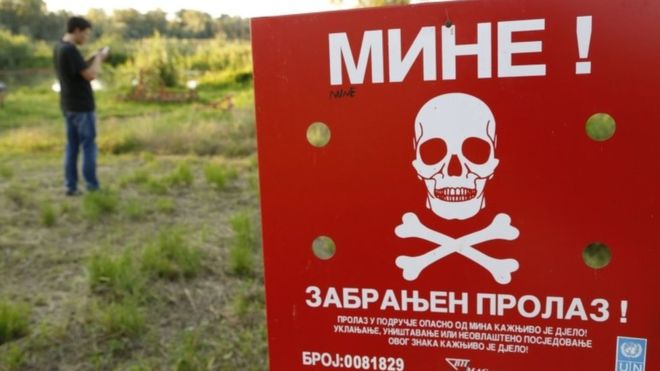


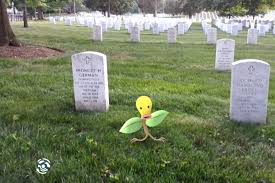
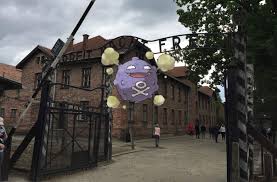

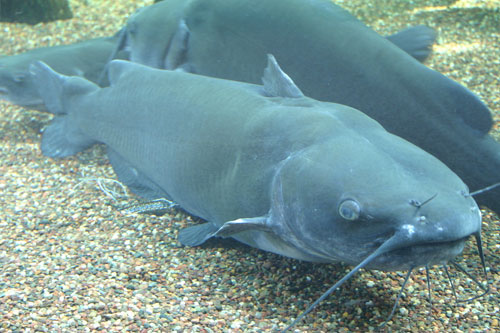
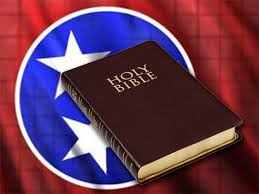



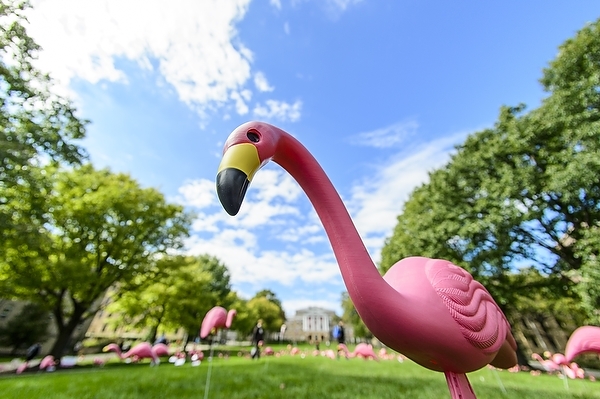
 RSS Feed
RSS Feed